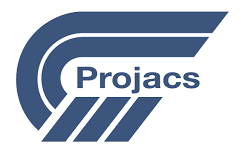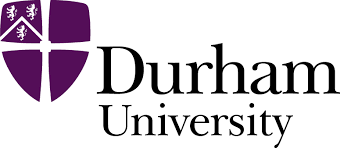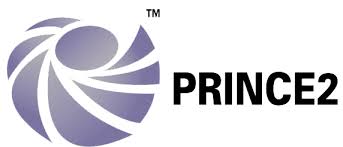
Mastering Purchasing Process from Specification to Contract Completion
Course ID: 2511107101383EGI
Course Dates : 10/11/25 Course Duration : 5 Studying Day/s Course Location: Dubai, UAE
Language: Bilingual
Course Category: Professional and CPD Training Programs
Course Subcategories: Project Management and Quality Assurance
Course Certified By: * Projacs Academy
* Professional Training and CPD Programs
Certification Will Be Issued From :
KSA
Course Fees: £2,942.92
Vat Not Included in the price. VAT may vary depending on the country where the course or workshop is held.
Click to Pay
Date has passed please contact us Sales@e-s-hub.com
Course Information
Introduction
The purchasing process is a cornerstone of organizational success, serving as the bridge between strategic planning and operational execution. In industries ranging from manufacturing to healthcare, effective procurement ensures that goods and services meet quality standards, align with budget constraints, and are delivered on time. However, the complexity of modern supply chains and the increasing demand for cost efficiency have elevated the importance of mastering this process. Professionals tasked with procurement responsibilities must navigate intricate specifications, negotiate favorable contracts, and ensure compliance with regulatory frameworks. This course addresses these challenges by equipping participants with the tools and methodologies to streamline the purchasing process from start to finish.
One of the most pressing challenges in procurement is the misalignment between initial specifications and final outcomes. For instance, a multinational corporation recently faced delays and cost overruns due to ambiguities in product requirements, which led to supplier disputes and rework. Such scenarios underscore the need for clarity and precision at every stage of the purchasing cycle. By exploring established frameworks such as Porter’s Value Chain and Kraljic’s Portfolio Matrix, this course provides participants with strategies to mitigate risks, optimize supplier relationships, and enhance value creation. These theoretical foundations are complemented by practical insights drawn from real-world case studies, ensuring that learners can apply their knowledge effectively.
Another critical gap lies in contract management, where poorly drafted agreements often result in financial losses or legal complications. A notable example is a construction company that incurred significant penalties after failing to include specific performance metrics in its supplier contracts. This course delves into best practices for drafting, negotiating, and managing contracts, emphasizing the importance of clear terms, measurable deliverables, and contingency plans. Participants will also learn how to leverage digital tools and automation to monitor contract performance, thereby reducing administrative burdens and enhancing accountability.
For individuals, mastering the purchasing process translates into enhanced career prospects and professional credibility. Procurement professionals who demonstrate expertise in specification development, supplier evaluation, and contract negotiation are highly sought after in competitive job markets. Organizations, on the other hand, benefit from improved cost savings, reduced supply chain disruptions, and stronger partnerships with vendors. The ripple effects extend beyond immediate financial gains, fostering innovation, sustainability, and resilience in an era of global uncertainty.
Industry trends further reinforce the relevance of this course. The rise of e-procurement platforms, blockchain technology, and artificial intelligence has transformed traditional procurement practices, necessitating continuous learning and adaptation. For example, companies adopting AI-driven analytics have reported a 15% reduction in procurement costs and a 20% improvement in supplier compliance. This course incorporates these technological advancements, providing participants with a forward-looking perspective that aligns with current and future industry demands.
Ultimately, the purchasing process is not merely a transactional activity but a strategic function that drives organizational success. By integrating theory, practice, and technology, this course empowers participants to navigate the complexities of procurement with confidence and competence. Whether you are a seasoned professional seeking to refine your skills or a newcomer eager to build a strong foundation, this program offers invaluable insights and actionable strategies to excel in the field.
Objectives
By attending this course, participants will be able to:
Analyze organizational needs to develop precise specifications for procurement projects.
Evaluate potential suppliers using qualitative and quantitative criteria, including risk assessment models.
Design comprehensive procurement strategies aligned with organizational goals and market conditions.
Implement effective negotiation techniques to secure favorable terms and conditions in supplier contracts.
Apply legal and compliance frameworks to draft and manage contracts that minimize risks and ensure accountability.
Utilize digital tools and technologies to monitor and optimize procurement processes.
Synthesize lessons learned from case studies to address real-world procurement challenges.
Who Should Attend?
This course is ideal for:
Procurement managers and officers responsible for sourcing and supplier management.
Supply chain professionals seeking to enhance their understanding of end-to-end procurement processes.
Project managers involved in vendor selection and contract oversight.
Legal and compliance officers tasked with reviewing procurement agreements.
Entrepreneurs and small business owners aiming to establish robust purchasing systems.
These groups will find the course valuable as it bridges the gap between theoretical knowledge and practical application, addressing common pain points such as unclear specifications, inefficient negotiations, and inadequate contract management. While beginners will benefit from foundational principles, intermediate practitioners will gain advanced insights into optimization and innovation.
Training Method
• Pre-assessment
• Live group instruction
• Use of real-world examples, case studies and exercises
• Interactive participation and discussion
• Power point presentation, LCD and flip chart
• Group activities and tests
• Each participant receives a 7” Tablet containing a copy of the presentation, slides and handouts
• Post-assessment
Program Support
This program is supported by:
* Interactive discussions
* Role-play
* Case studies and highlight the techniques available to the participants.
Daily Agenda
The course agenda will be as follows:
• Technical Session 08.30-10.00 am
• Coffee Break 10.00-10.15 am
• Technical Session 10.15-12.15 noon
• Coffee Break 12.15-12.45 pm
• Technical Session 12.45-02.30 pm
• Course Ends 02.30 pm
Course Outlines
Foundations of Procurement
Overview of the purchasing process and its role in organizational strategy.
Key principles of specification development and requirement gathering.
Introduction to procurement frameworks (e.g., Kraljic’s Matrix).
Case study: Lessons from a successful procurement transformation.
Day 2:
Supplier Evaluation and Selection
Criteria for assessing supplier capabilities and reliability.
Risk management strategies in supplier selection.
Tools for conducting market analysis and benchmarking.
Group exercise: Evaluating a hypothetical supplier portfolio.
Day 3:
Negotiation Techniques and Strategies
Fundamentals of negotiation theory and practice.
Tactics for achieving win-win outcomes in supplier negotiations.
Role-playing session: Simulated negotiation scenarios.
Best practices for documenting negotiated agreements.
Day 4:
Contract Development and Management
Legal considerations in procurement contracts.
Drafting clear and enforceable contract terms.
Monitoring and enforcing contract compliance.
Technology-enabled solutions for contract lifecycle management.
Day 5:
Advanced Topics and Future Trends
Leveraging data analytics in procurement decision-making.
Emerging technologies: Blockchain, AI, and e-procurement platforms.
Sustainability and ethical considerations in procurement.
Final group project: Presenting a procurement strategy for a case study organization.



















































